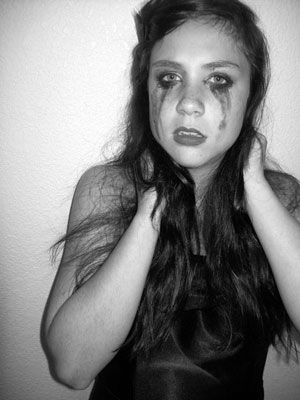All Nonfiction
- Bullying
- Books
- Academic
- Author Interviews
- Celebrity interviews
- College Articles
- College Essays
- Educator of the Year
- Heroes
- Interviews
- Memoir
- Personal Experience
- Sports
- Travel & Culture
All Opinions
- Bullying
- Current Events / Politics
- Discrimination
- Drugs / Alcohol / Smoking
- Entertainment / Celebrities
- Environment
- Love / Relationships
- Movies / Music / TV
- Pop Culture / Trends
- School / College
- Social Issues / Civics
- Spirituality / Religion
- Sports / Hobbies
All Hot Topics
- Bullying
- Community Service
- Environment
- Health
- Letters to the Editor
- Pride & Prejudice
- What Matters
- Back
Summer Guide
- Program Links
- Program Reviews
- Back
College Guide
- College Links
- College Reviews
- College Essays
- College Articles
- Back
The Existence of Rape Culture
“Don’t worry; no-one would rape you.”
Weirdly enough, this is an insult. I heard an older boy say it to a young girl on the bus a few weeks ago, after she was horsing around with another boy, this one her age, and jokingly said he was raping her. And just like that, he assigned her worth. This girl who couldn’t have been more than thirteen was essentially told that she was too undesirable for anyone to want to take advantage of her. He used rape to insult her so that other kids around them could laugh. Even the little girl laughed; it was all a joke.
That is rape culture in our society. It is making a joke out of something many consider worse than death. It is a concept linking rape and sexual violence to the culture of a society, causing prevalent attitudes and practices to normalize, excuse, tolerate, and even condone rape. Although many people deny the existence of such a culture, chalking it up to an imaginary concept created by angry, man-hating feminists, rape culture is a very real facet of our society that needs to be acknowledged in order to be fixed.
Those who do not believe in rape culture often contribute most to it. In an article submitted to U.S. News, Caroline Kitchens argues that a study finding that 1 in 5 women are sexually assaulted during college in inaccurate because it “employed such a broad definition that ‘forced kissing’ and even ‘attempted forced kissing’ qualified as sexual assault.” Although trying to dismiss the existence of rape culture with this fact, Kitchens actually does a nice job of exposing just how much our society blames the victims of sexual assault to try to avoid addressing the real issues. Apparently, “attempted forced kissing,” though it falls entirely within the realm of sexual assault as defined by the U.S. Department of Justice, just isn’t assault enough to qualify as a major issue; never mind all the women who participated in the study whose assault went farther than unwanted kissing. Kitchens, and others of her mindset, are dismissing thousands of women because some of them just were not victim enough for her liking. They’re just looking for a simple way to make the uncomfortable issue of rape go away.
This need for a simple way to make the issue go away is reflected in an article David Hookstead wrote for The Badger Head. In it, his argument basically boils down to: only bad people rape, so it’s not a prevalent issue, and that women can rape men too, so the feminist construct of rape culture is invalid. Though he has a valid point that men can be victims (1 out of every 6 men is sexually abused before the age of eighteen), this only strengthens the fact that rape culture is real and affecting everyone. This merely reflects the need for a more open discussion of the issue that people denying its existence are just not willing to have. His other key point, that “bad people exist,” and that is the sole “reason for murder, rape, child abuse, domestic abuse and all sorts of crimes,” is also just not true. There is hardly ever a big, bad rapist who strikes at random and lurks in dark alley ways. As Jaclyn Friedman (author of Yes Means Yes: Visions of Female Sexual Power and A World Without Rape) points out, most victims have a relationship with their rapists, who are more often than not what we would think of as productive members of society.
Because of this, victims of assault are often afraid to report. Many are blamed for what happened to them; Zerlina Maxwell, a victim of rape in college, was told “You were drinking, what did you expect?” when she went to someone she trusted with her report.
This is a reflection of what many victims will hear when they seek out support. And it is because of people like Hookstead and Kitchens, people who deny the existence of rape culture, that these victims voices are not heard. We must look at the problem and call it what it really is if we are ever to solve it. We must not run away from this issue or any other just because it makes us uncomfortable or because it’s a social norm. It’s true that the label of a “rape culture” comes from feminism and has become much more prevalent in recent times; however, that doesn’t provide evidence against the existence of such a culture, just as the law explaining gravity came after gravity had already existed. For the sake of all of the victims of rape or any form of sexual assault, and for the sake of future generations of girls and boys, we cannot afford to ignore rape culture.

Similar Articles
JOIN THE DISCUSSION
This article has 0 comments.
